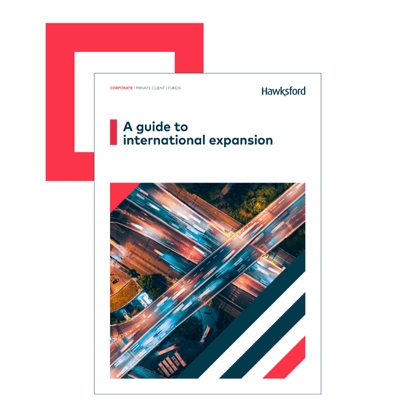Comparison - 01/02/2012
Discretionary Trusts
A Discretionary Trust is one of the most flexible types of trust structure. In this type of trust, the Trustee has full discretion to decide on the share of the trust capital and income which each beneficiary may receive. As a result, it provides more flexibility than a Fixed Interest Trust and the Trustees can respond to future circumstances as and when they arise. In administering a Discretionary Trust, the Trustee should receive guidance from the settlor as to the distribution of capital and income and this is given in the form of a letter of wishes. This letter may be amended from time-to-time or totally revoked but, whilst it provides useful guidance for the Trustee, it is not legally binding.
Interest in Possession Trusts
An Interest in Possession Trust is a trust where certain identified beneficiaries will be entitled to a fixed portion of the trust fund. i.e. the income during his or her lifetime.
The interests are usually fixed by time (for example, a beneficiary may be paid income until the age of 18 or 25 or until he/she marries, or until he/she dies) and by amount (for example, a beneficiary may be limited to 25%, 50% or any other proportion of the trust assets). The specific interests can be tailored to meet virtually any requirements (provided that the trust period must end within one hundred years of its creation).
Accumulation and Maintenance Trusts
An Accumulation and Maintenance Trust is generally set up to benefit a settlor's family members for example, his children, grandchildren and future generations.
As the name suggests, it is a trust which requires the Trustee to accumulate the income of the trust for a set period of time (18 years usually), but gives power for the income to be used in order to benefit (or "maintain") any of the beneficiaries should the need arise (for example, to pay school or medical fees).
The benefits of the trust can therefore be enjoyed by a number of generations although, at some point, the descendants of the settlor will have to receive the capital of the trust fund.
Purpose Trusts
Until recently, Jersey followed English law in recognising only trusts in favour of named charities established for charitable purposes. It is now possible to set up trusts which are neither charitable nor for obvious beneficiaries, but for a specific purpose.
The possibilities are virtually limitless, ranging from Private Family Trusts or for authorities for public amenities at one end of the scale, to those used in international financial transactions at the other, such as off-balance sheet transactions.
The only limiting factors are that the purpose must be clear and cannot be immoral, illegal or contrary to public policy. Additionally, a person known as an "Enforcer" must be appointed to enforce the terms of the trust.
Reserved Powers Trusts
A Reserved Powers Trust allows a third party or for example the settlor to the trust (depending on tax advice), to retain certain powers in respect of the trust. These powers may deal with any aspect of the trust, ranging from how the trust's assets are invested, through to who may benefit from the trust and in what circumstances.
Trusts of this type offer flexibility which appeals to many prospective settlors, although in each case care will need to be taken to ensure that the reservation of any particular power or powers does not give rise to any adverse tax consequences. If the third party is the settlor of the trust and no instructions exist as to another third party taking over after their death, the trust can revert to a Discretionary Trust.
Charitable and Non-charitable Purpose Trusts
A trust must include identifiable beneficiaries. The Trustees' duties (including the requirement to preserve and enhance the trust fund) are to the beneficiaries. Without identifiable beneficiaries no-one is able to enforce the duties against the Trustees. Therefore, a trust cannot function or exist in law.
An exception to this general rule allows trusts to be established in favour of charitable purposes. In such cases it is the Attorney General who enforces the Trustee's duties and obligations. Jersey Law also allows non-charitable purpose trusts, or simply 'purpose trusts'. All of the same rules for Jersey trusts apply with two exceptions:
The trust deed must set out the particular purpose for which the trust has been established; and
The trust must provide a person or corporate entity whose duty it is to enforce the trust in relation to its non-charitable purposes. This person or corporate entity is called the 'enforcer' and must be different to the Trustees.
Sharia-compliant Trusts
Increasingly frequently, Jersey Trustees are being asked to provide Sharia-compliant trusts. The two main issues that usually arise are in relation to the strict Islamic rules of inheritance and rules of investment. The question that usually arises is how compliant the settlor wishes the trust to be. In most cases, a Discretionary Trust can be used, as this type of trust can be modified to suit clients' shari'a beliefs.
As far as inheritance is concerned, Islamic rules are extremely complicated. To comply strictly with the rules, it should be a term of the trust that on the death of the settlor, the trust fund is paid to the settlor's heirs in the precise proportions set out in Islamic law. However, it is possible for a settlor to request that the assets of the trust are divided on his death into separate sub-funds for each beneficiary, with the sub-funds being held on a discretionary basis and advised comprehensively by a letter of wishes.
Alternatively, the settlor may provide the Trustee with a non-binding letter of wishes setting out the way in which he would like assets to be held following his death. As regards investment, there is no reason why a trust deed cannot restrict investments to those that are Shari'a compliant.
This usually involves avoiding investments that pay interest or which involve forbidden products such as alcohol or pork. There are now a number of investment advisers and managers who offer Shari'a-compliant investment products.
New Zealand Trusts
The New Zealand Exempt Trust has been a part of New Zealand's legislative taxation framework since 16 December 1988. It is a simple and logical structure; the result of a deliberate policy of the New Zealand Government. The New Zealand Exempt Trust offers non-residents of New Zealand all the advantages of a conventional tax-free structure within a well-regulated jurisdiction. New Zealand trusts are regulated by the Trustee Act 1955 and have many similarities to Jersey trusts. Differences include:
- A New Zealand trust may hold property, trade or operate a business;
- A custodial or principal Trustee must be a New Zealand resident in order to be Trustee of an Exempt Trust;
- It is possible to terminate the trust subject to certain procedures; and
- The trust may operate for a maximum of 80 years, although there are proposals to extend this to 150 years.
Shared management of trusts
Many settlors want their own advisers to have some role in the continued management of the trust they create. In other jurisdictions this is achieved by such roles as a Protector, an Appointer with a general power of appointment, and an Investment Advisor or Investment Committee.
Problems have been experienced with these roles in some jurisdictions because they have not been clearly defined. New Zealand presents no such problems. The New Zealand Trustee Act 1955 specifically allows for:
- Third party investment direction to Trustees by an Investment Advisor or Committee;
- Advisory Trustees who are entitled to advise the Trustees on any aspect of the administration and management of the trust;
- Managing Trustees who may work with the Custodial Trustees to manage the trust and its investments;
- General Powers of Appointment amongst a wide beneficiary class which may be exercised by third parties; and
- The adding of further beneficiaries at a later stage.

Find out more about our private client services
Email or speak to any key contact on our private client services page to find out how we can help you.
Updated on



